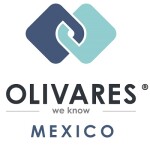On August 10, 2018 several modifications to the Mexican Industrial Property Law entered into force, resulting in some new IP figures being recognised in Mexico.
One of the new legal concepts included in the Law is 'acquired distinctiveness,' more commonly known as 'secondary meaning', which allows the registration of trademarks that can be considered as not initially distinctive, but owing to their commercial use have acquired distinctiveness.
However, these modifications still need to be complemented with regulation and are yet to be published in the Official Gazette.
In light of this there are no clear guidelines to determine the evidence required to support an application for a trademark filed based on acquired distinctiveness, and so it is not clear how The Mexican Institute of Industrial Property (IMPI) will examine these applications when filed.
In order to be able to demonstrate that a trademark has acquired distinctiveness it is necessary to prove that it has been used in the market and that consumers recognise the trademark in relation to the goods and/or services that it distinguishes. This is to ensure that the trademark complies with its main requisite, i.e. that it is sufficiently distinctive to enable its goods/services to be distinguished from others in the market.
Factors that can support the distinctiveness of the trademark in the market include:
surveys;
the date of first use of the mark in Mexico;
the period of time of continued use and advertisement of the trademark in Mexico;
the volume of sales of the goods/services identified with the trademark during the last three years.
In any case, until the regulations to the industrial property law are published in the Official Gazette, it will be necessary to meet with examiners to determine whether or not this evidence is sufficient to obtain a favourable resolution from the authorities.

|
Wilma Caraza |
Olivares
Pedro Luis Ogazón No 17
Col San Angel
01000 México DF
Tel: +5255 53 22 30 00
Fax: +5255 53 22 30 01











